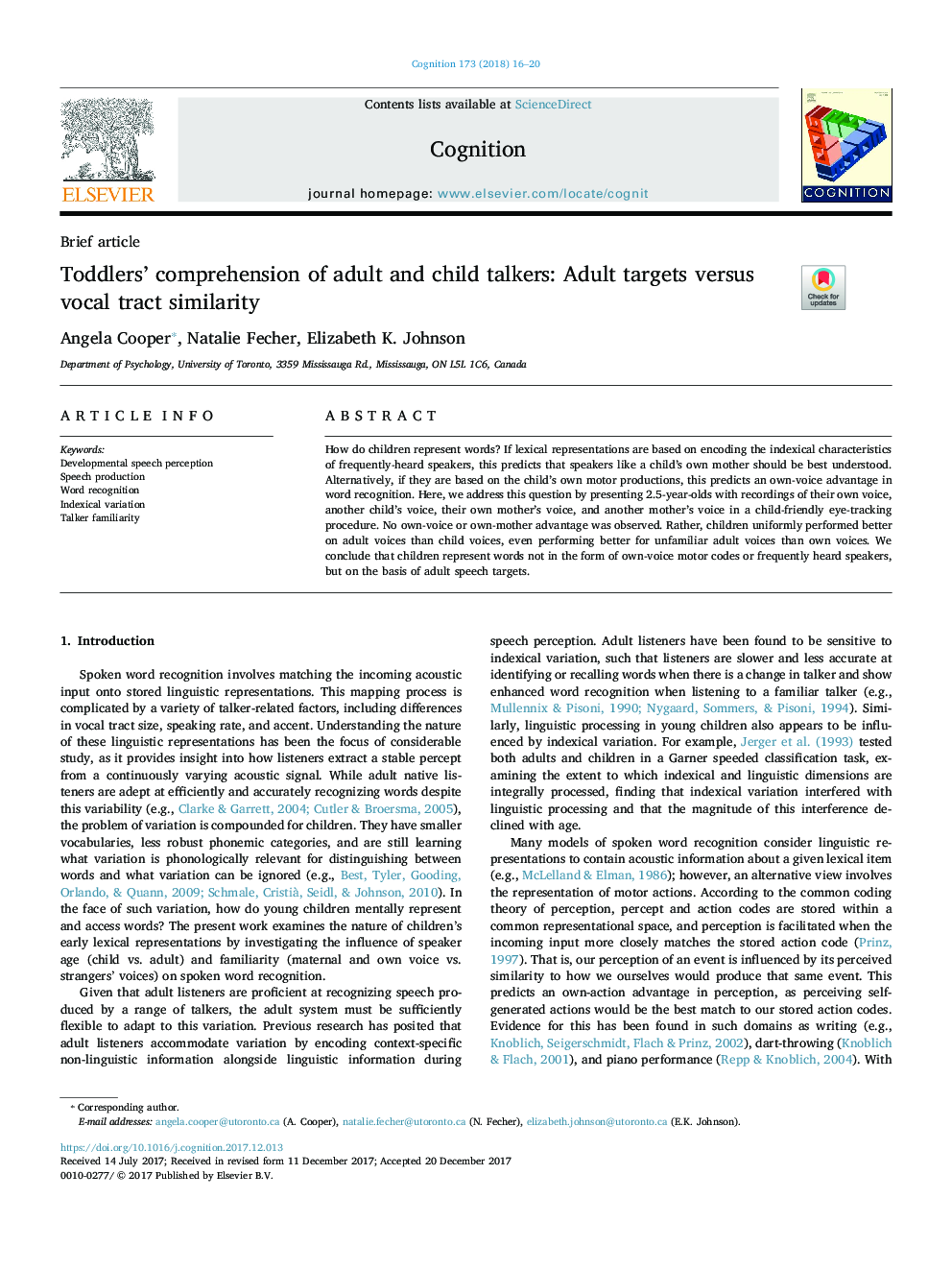| Article ID | Journal | Published Year | Pages | File Type |
|---|---|---|---|---|
| 7285485 | Cognition | 2018 | 5 Pages |
Abstract
How do children represent words? If lexical representations are based on encoding the indexical characteristics of frequently-heard speakers, this predicts that speakers like a child's own mother should be best understood. Alternatively, if they are based on the child's own motor productions, this predicts an own-voice advantage in word recognition. Here, we address this question by presenting 2.5-year-olds with recordings of their own voice, another child's voice, their own mother's voice, and another mother's voice in a child-friendly eye-tracking procedure. No own-voice or own-mother advantage was observed. Rather, children uniformly performed better on adult voices than child voices, even performing better for unfamiliar adult voices than own voices. We conclude that children represent words not in the form of own-voice motor codes or frequently heard speakers, but on the basis of adult speech targets.
Keywords
Related Topics
Life Sciences
Neuroscience
Cognitive Neuroscience
Authors
Angela Cooper, Natalie Fecher, Elizabeth K. Johnson,
